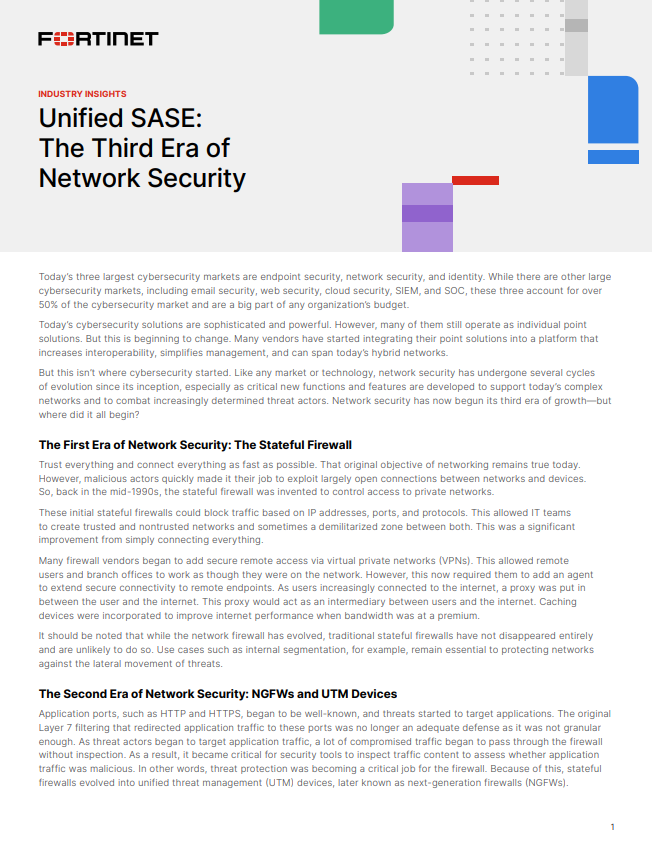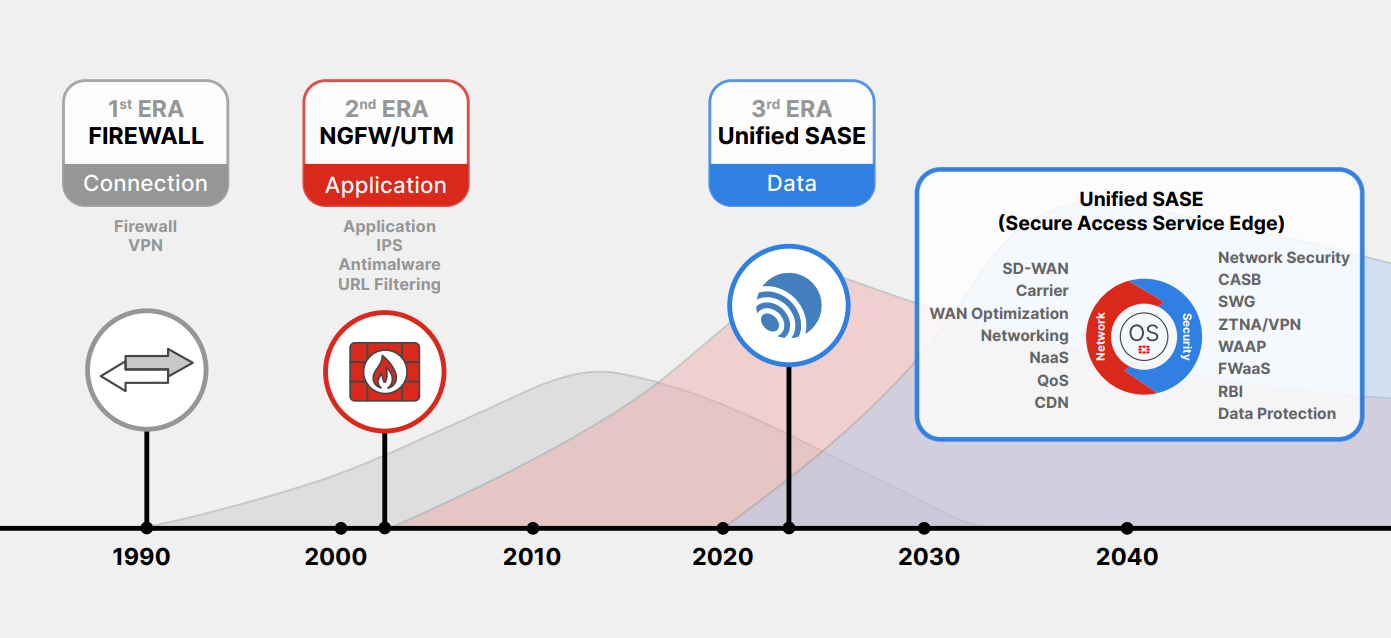
Free eBook: Unified SASE — The Third Era of Network Security
Discover the evolution of network security and how Unified SASE is redefining protection for hybrid, cloud, and distributed environments. This eBook reveals how to unify security, simplify management, and improve performance. Complete the form to get your copy instantly.

Today’s three largest cybersecurity markets are endpoint security, network security, and identity. While there are other large cybersecurity markets, including email security, web security, cloud security, SIEM, and SOC, these three account for over 50% of the cybersecurity market and are a big part of any organization’s budget.
Today’s cybersecurity solutions are sophisticated and powerful. However, many of them still operate as individual point solutions. But this is beginning to change. Many vendors have started integrating their point solutions into a platform that increases interoperability, simplifies management, and can span today’s hybrid networks.
But this isn’t where cybersecurity started. Like any market or technology, network security has undergone several cycles of evolution since its inception, especially as critical new functions and features are developed to support today’s complex networks and to combat increasingly determined threat actors. Network security has now begun its third era of growth—but where did it all begin?
The Era of Network Security
First Era
The Stateful Firewall
Connection

Second Era
NGFWs and UTM Devices
Application

Third Era
Unified SASE
Data

What You’ll Learn in This eBook
- The Evolution of Network Security: How we moved from stateful firewalls to NGFWs/UTMs, and now into the Unified SASE era.
- Why Traditional Point Solutions Fall Short: The challenges of managing separate security tools in today’s hybrid and multi-cloud networks
- Core Components of Unified SASE: From Secure SD-WAN and ZTNA to CASB, SWG, and firewall-as-a-service—all in one integrated platform.
- How AI-Powered Integration Changes the Game: Using a single OS, unified client, and shared policy engine to boost visibility, control, and threat response speed.
- The Benefits of a True Unified SASE Platform: Simplified management, consistent security policies, and optimized performance for distributed users.
- A Blueprint for the Next Era: How Unified SASE can adapt to future threats while meeting evolving business demands without compromising security.
Table of Contents
- Cybersecurity’s Big Three — Endpoint, Network, and Identity
- The Evolution of Network Security — From Firewalls to NGFWs to Unified SASE
- What Makes Unified SASE Different — Converging Networking & Security
- Core Components — SSE, Secure SD-WAN, AI Threat Detection
- Expanded Capabilities — CASB, ZTNA, SWG & More
- The Fortinet Advantage — Single OS, Unified Client, Integrated Intelligence
- The Future — Adapting to the Next Era of Threats


